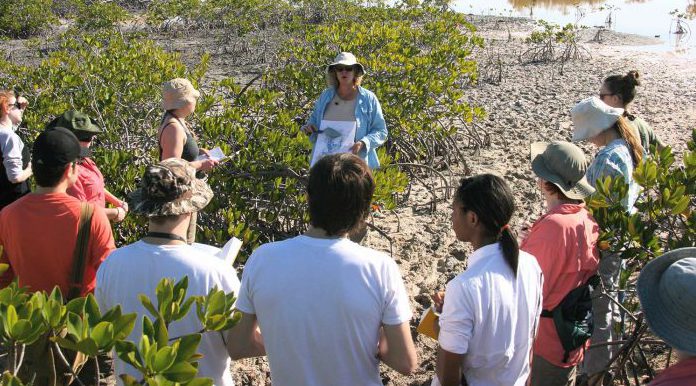
Graduate Programs
Master of Science in Environmental and Urban Geosciences
The master's degree in Environmental and Urban Geosciences (M.S. EUG) prepares students for advanced study in natural hazards, paleoseismology, geology, geochemistry, climate variability, water resources, wetland dynamics, air and water pollution, geoarchaeology, paleoenvironments, geography, urban and human systems, geographic information systems and environmental remote sensing. The program provides students with either a thesis or non-thesis option.
Geographic Information Systems Graduate Certificate
GIS and related geo-spatial techniques are fast-growing and increasingly applied to almost all sectors of our society. Examples include environmental mapping, urban planning and public resource management. This program offers GIS-related multidisciplinary courses through several academic programs such as geosciences, urban planning and design, sociology, economics and criminal justice and criminology. The curriculum is designed to prepare students for a variety of careers in the rapidly growing job market.
Natural Sciences Ph.D. in Geosciences
UMKC offers a Natural Sciences Ph.D. program which takes a multidisciplinary approach to earning a doctorate.
Learn more about the Geosciences Discipline
Interdisciplinary Ph.D.
(Fall 2025 is the last term that applications will be reviewed for the interdisciplinary program.)
UMKC’s Interdisciplinary Ph.D. program includes Geosciences as a dedicated discipline.
Faculty members in the Department of Earth and Environmental Sciences conduct research in applied geophysics, atmospheric sciences, climate variability and climate change, cultural and historical geography (Europe, Latin America, the Caribbean and West Africa), engineering and environmental geology, geochemistry, GIS, historical cartography, geoarcheology, geomorphology, mineral deposits, stratigraphy and quaternary environments.
Suggested co-disciplines
Consultation with the principal graduate advisors for geology and geography would be a good way for the student to explore co-disciplines. Previous students have designated co-disciplines of chemistry, civil engineering, computer science, curriculum and instruction and physics. Other excellent possibilities would include economics, history and sociology.
Areas of Research
- Aqueous and hydrothermal geochemistry
- Black shale deposits
- Characterization of architectural stone deterioration
- Climate change, variability, and modeling
- Climate resilience and environmental sustainability
- Earthquake geology
- Fluid inclusions
- Geoarchaeology
- Natural hydrogen gas deposits
- Ore deposits
- Physical volcanology
- Remelted basaltic rock
- Sedimentology and stratigraphy
- Structure for motion photogrammetry
- Tectonics and active faulting
- X-ray diffraction methods
